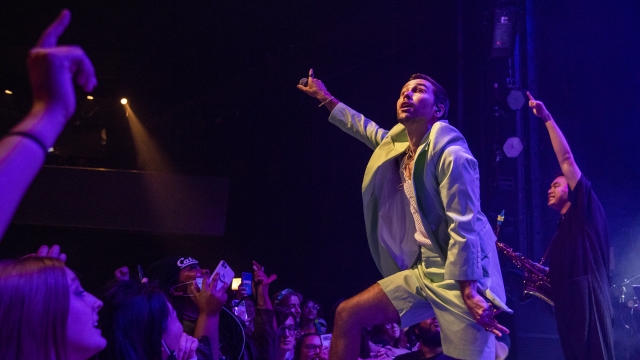As hundreds of thousands of concertgoers from around the country descend on Chicago for Lollapalooza, many health experts are worried that the four-day music festival poses the risk of becoming a COVID-19 superspreader event.
"When you’re having this many folks who are coming through, almost certainly there will be some cases," said Dr. Allison Arwady, commissioner of the Chicago Department of Public Health.
First, to get into Lollapalooza, people will either have to show proof of vaccination or a printed copy of a negative COVID test that's no more than 72 hours old. That means any non-vaccinated, four-day music fan would have to be tested twice. Anybody unvaccinated will have to wear masks throughout the festival, too.
Lollapalooza is asking people not to attend if they've tested positive for the virus or been exposed to someone with the virus within 14 days of the start of the festival. Chicago’s FBI branch says it's also on the lookout for anyone using or making fake vaccination cards.
Even with all these efforts, Arwady says said she can’t promise that there won’t be any COVID cases associated with Lollapalooza.
"I’m confident that the combination of what we know about limiting risk in outdoor settings, pairing that with vaccination and/or testing — and ideally mostly vaccination, which is what we expect — as well as all the other mitigation factors, I’m certainly hopeful we won’t see a significant problem," Arwady said.
One concern is ticket holders traveling from areas with high rates of COVID and bringing it to the fest. Chicago currently has travel advisories enacted for 14 states and the Virgin Islands.
"You have people coming from all over who had a test within 72 hours prior to entry into the festival — not really any regulation as to what they do within that 72 hours before getting in. And then, really, after they enter, having an honor system in place where effectively you're trusting everyone around you," said Dr. Marc Sala, a pulmonary and critical care specialist at Northwestern Medicine.
Beyond a potential new COVID-19 spread spread around Chicago, Sala said he’s concerned about how the disease will spread outside of Illinois, especially among young people.
"It's very clear that the COVID-19 right now, in the severe form of the illness, is a disease among the demographic of young unvaccinated. And so you have that cohort essentially gathering around for Lollapalooza. And so then they will leave town; they might go to another state. And so that has the potential to be a spreader event." said Sala.
Health experts Newsy spoke to said that if you're attending Lollapalooza, you have to assume you'll be exposed by someone and that all attendees should wear a mask, vaccinated or not.


